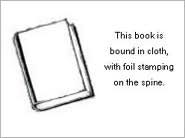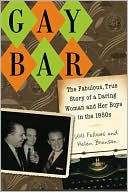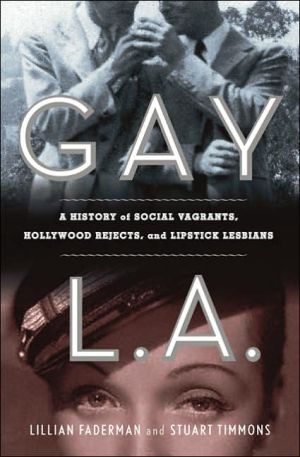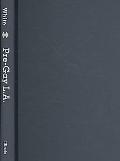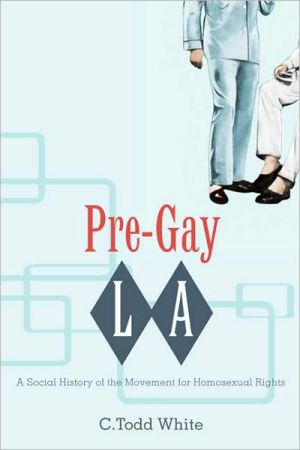The Making of a Gay Asian Community: An Oral History of Pre-AIDS Los Angeles
In this unique oral history, gay Asian Americans talk frankly about their struggle for self-determination and independence. For the first time, in their own words, pioneers in the Los Angeles movement discuss the gay scene in Southern California and the development of a distinctly Asian American identity. Despite its size, until recently the gay Asian American community in Los Angeles was fragmented and marginalized. Gay Asian men separated into their own ethnic cliques and preferred whites...
Search in google:
In this unique oral history, gay Asian Americans talk frankly about their struggle for self-determination and independence. Despite its size, until recently the gay Asian American community in Los Angeles was fragmented and marginalized as gay Asian men separated into their own ethnic cliques and preferred whites as sexual partners. Using a cultural studies lens to interpret the rich oral narratives he collected, Eric C. Wat shows how a dominant sexual ideology can influence our desires and contradict our memories. By documenting the founding of the first gay Asian organization in Southern California (Asian/Pacific Lesbians and Gays [A/PLG]), Wat powerfully portrays the ways gay Asian men confronted these contradictions publicly and struggled to fashion a coherent identity and community based on both their race and sexuality. His analysis returns gay Asian men to the center of their lives and celebrates the power of individuals working collectively to define their desires and combat injustice. Booknews Consciously modeling the title of this work after E.P. Thompson's , the author argues that communities, like classes, are not just an aggregate of individuals forming an ahistorical category, but in fact can only be seen, as Thompson said, "over an adequate period of social change," in which "we observe patterns in their relationships, their ideas, and their institutions." It is with that observation in mind that the author presents oral histories exploring the formation of the Asian gay community in Los Angeles, with a particular emphasis on the founding of Asian/Pacific Lesbians and Gays in late 1980. Interpreting the oral narratives, he analyzes the racialization of sexual desire and the dynamics of power in relationships and communities. Annotation c. Book News, Inc., Portland, OR (booknews.com)
AcknowledgmentsixIntroduction11Before the BeginningAs Sissy As They Come11All about Butching Up17The Future Is in America212Caution and Abandonment on the L.A. NightscapeWork Was Work33All the Information You Ever Wanted38I've Never Seen You Guys44Three Pieces of ID55The Cult of Masculinity603A Fascism of DesireAsians Never Like Other Asians67A Vicious Circle794The Call from Morris KightStruggle with My Gayness93The Right Thing to Do1025Old Scars on a New BodyTaking Charge ...115... But Who's the Boss?124An Ambassador's Job131It Was All Volunteers137That Hostile Asian Group142If Only We Could Harness It1476The Next GenerationNot That Kind of Organization153Are You "Sticky"?162Love Your Asian Body171Afterword175Appendix IOn Methods and Methodology187Appendix IIInterviews199Bibliography209Index213About the Author217
\ Committee On Lesbian and Gay History NewsletterThe oral histories [Wat] presents are essential reading for any Asian-American studies or LGBT class.\ \ \ \ \ Gay TimesIt is a fascinating story that ranges across many peoples and subjects. A fascinating work for all students of gay politics.\ \ \ Journal Of Asian American StudiesAn important book that fills a long-standing gap in gay community history—the documentation of the emergence of Asian American gay communities. . . . Lucid, cogent and well-organized. . . . A triumph.\ \ \ \ \ BooknewsConsciously modeling the title of this work after E.P. Thompson's , the author argues that communities, like classes, are not just an aggregate of individuals forming an ahistorical category, but in fact can only be seen, as Thompson said, "over an adequate period of social change," in which "we observe patterns in their relationships, their ideas, and their institutions." It is with that observation in mind that the author presents oral histories exploring the formation of the Asian gay community in Los Angeles, with a particular emphasis on the founding of Asian/Pacific Lesbians and Gays in late 1980. Interpreting the oral narratives, he analyzes the racialization of sexual desire and the dynamics of power in relationships and communities. Annotation c. Book News, Inc., Portland, OR (booknews.com)\ \
